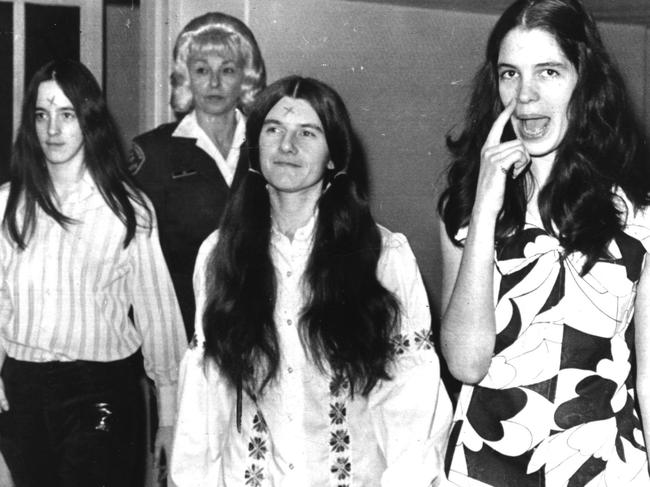Charles Manson follower Leslie Van Houten recommended for parole after four decades in jail
The youngest member of Charles Manson’s murderous cult has been judged suitable for release from prison after 40 years but she has one hurdle to get over first.
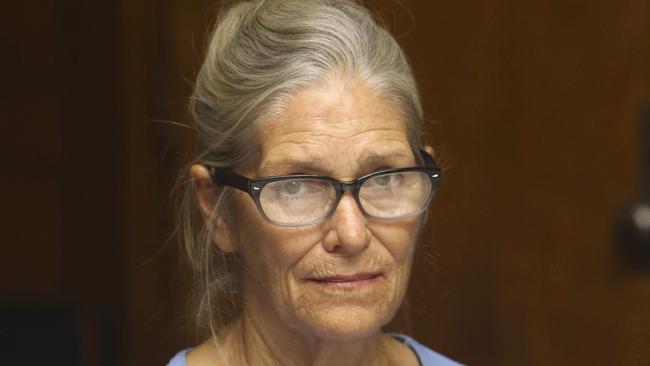
True Crime
Don't miss out on the headlines from True Crime. Followed categories will be added to My News.
A California panel has recommended that Charles Manson follower Leslie Van Houten be paroled after serving more than four decades in prison.
After a hearing at the women’s prison in Corona, California, commissioners of the Board of Parole Hearings found for the third time that the 69-year-old Van Houten was suitable for release.
If her case withstands a 150-day review process, it will rest in the hands of California’s new Governor Gavin Newsom.
Van Houten was recommended for parole twice previously, but then-Governor Jerry Brown blocked her release.

Van Houten was among the followers in Manson’s murderous cult who stabbed to death wealthy grocer Leno LaBianca and his wife, Rosemary, in 1969. Van Houten was 19 during the killings, which came a day after other Manson followers killed pregnant actress Sharon Tate and four others in Los Angeles.
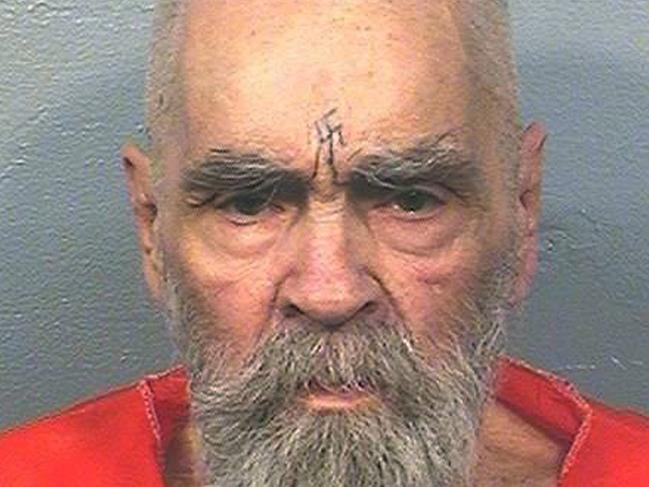
Tate’s sister attended proceedings and said afterwards that she vehemently disagrees with the parole recommendation.
“I just have to hope and pray that the governor comes to the right decision” and keeps Van Houten behind bars, Debra Tate said. Governor Newsom has not yet made a comment on the recommendation.
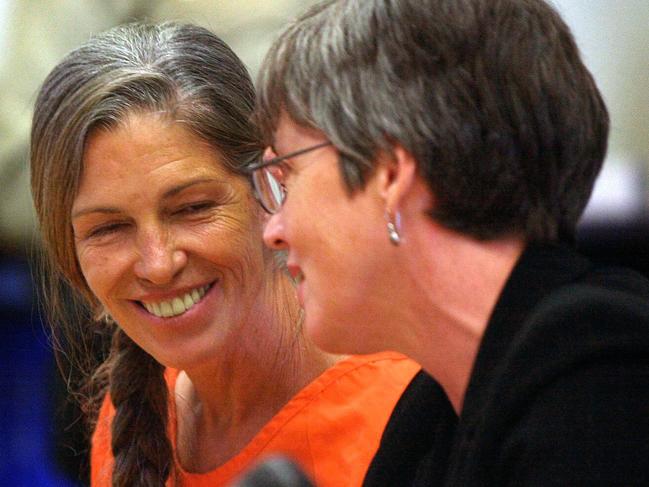
Van Houten’s lawyer, Rich Pfeiffer, said he was pleased with how the commissioners focused on making sure that she took “full responsibility” for her role in the killings.
“She chose to go with Manson. She chose to listen to him. And she acknowledges that,” Pfeiffer said. He predicted that it “will be much more difficult” for Governor Newsom to block parole than it was for Brown.
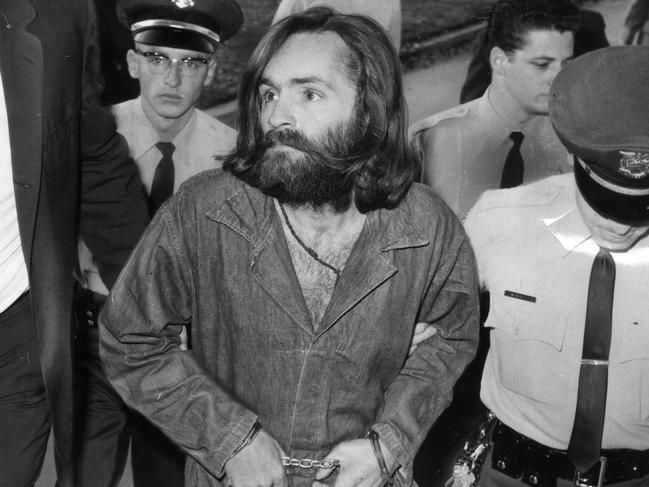
In his decision last year, Governor Brown acknowledged Van Houten’s youth at the time of the crime, her more than four decades of good behaviour as a prisoner and her abuse at the hands of Manson. But he said she still laid too much blame on Manson for the murders.
At her last hearing, Van Houten described a troubled childhood. She said she was devastated when her parents divorced when she was 14. Soon after, she said, she began hanging out with her school’s outcast crowd and using drugs. When she was 17, she and her boyfriend ran away to San Francisco’s Haight-Ashbury District during the city’s famous “Summer of Love” in 1967.

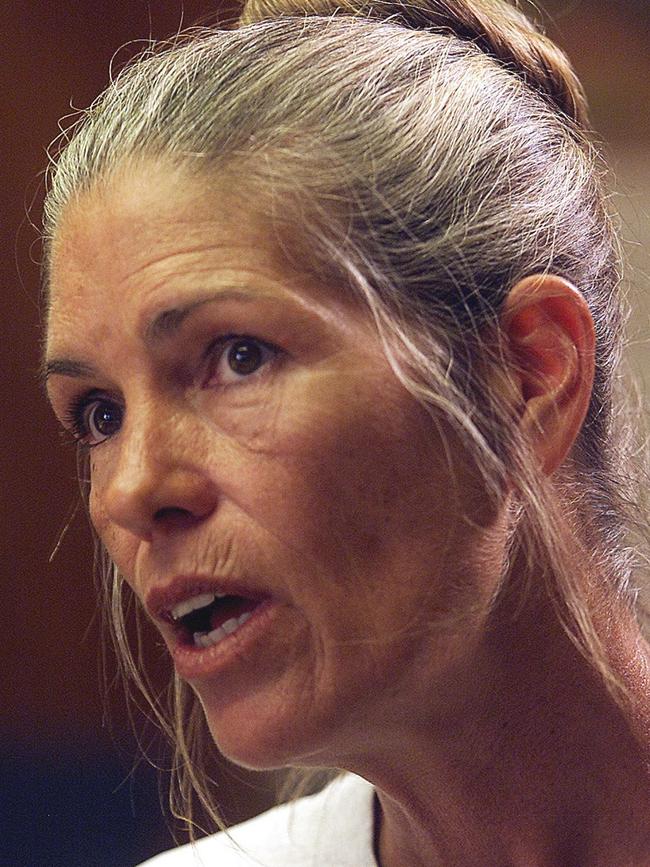
She was travelling up and down the California coast when acquaintances led her to Manson. He was holed up at an abandoned movie ranch on the outskirts of Los Angeles where he had recruited what he called a “family” to survive what he insisted would be a race war he would launch by committing a series of random, horrifying murders.
Van Houten said she joined several other members of the group in killing the LaBiancas, carving up Leno LaBianca’s body and smearing the couple’s blood on the walls.
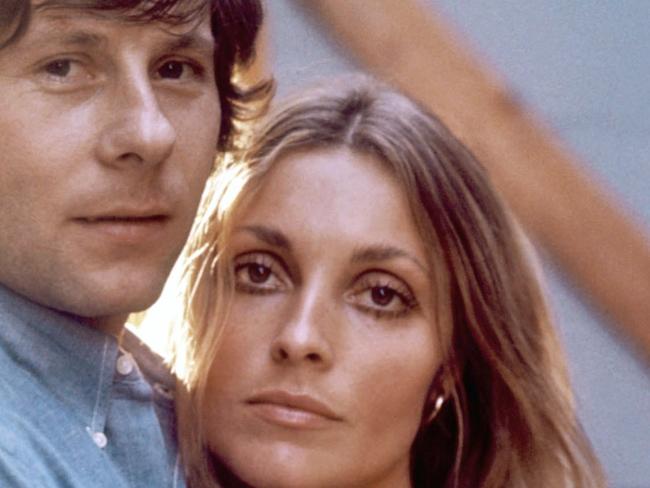
No one who took part in the Tate-LaBianca murders has been released from prison. Manson died in 2017 of natural causes at a California hospital while serving a life sentence.
Last month, a California parole panel recommended for the first time that Manson follower Robert Beausoleil be freed. Beausoleil was convicted of killing musician Gary Hinman.
